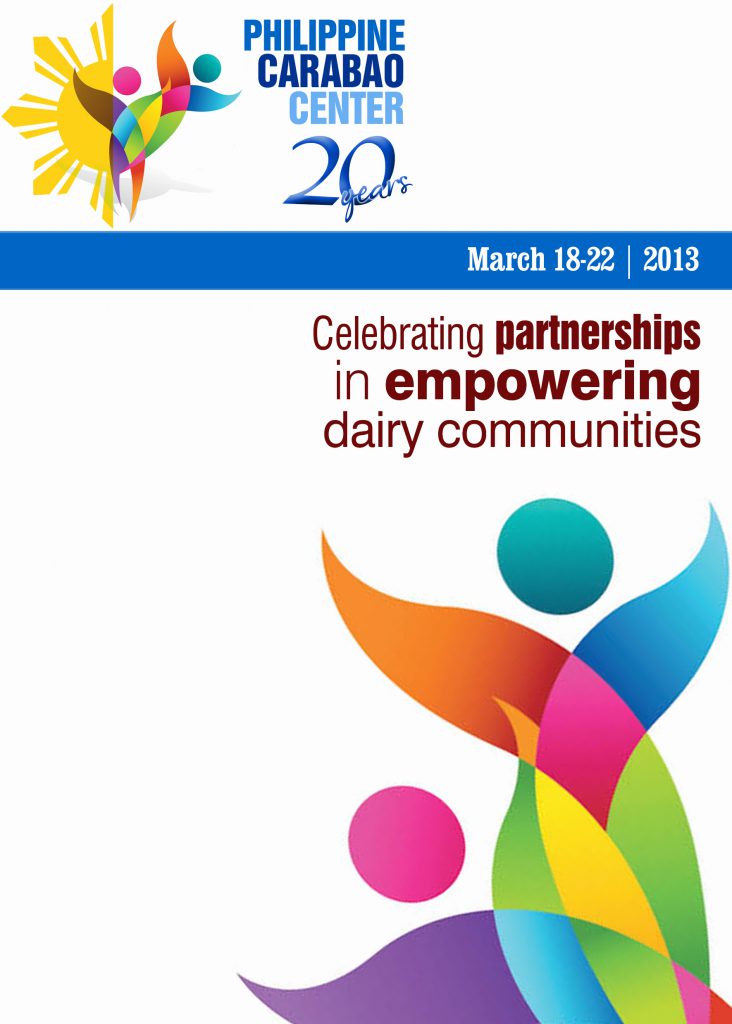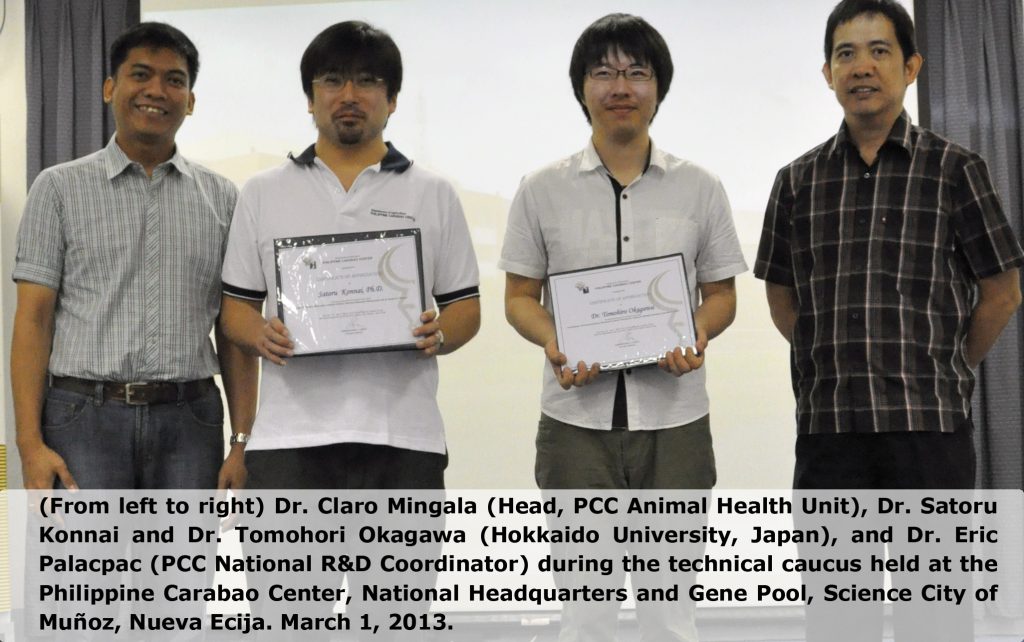In the livestock sector, the Philippine Carabao Center (PCC) is hailed to be the leader in the national livestock biotechnology research and development program. Behind this mandate, PCC’s pillars and partners help steer the agency’s social responsibility in pushing for the success of the Carabao Development Program (CDP).
On the occasion of its 20th anniversary celebration, PCC underscores the significant contributions of these pillars in the creation of the agency. They are to be honored in a ceremony to be held at the agency’s National Headquarters in the Science City of Muñoz, Nueva Ecija on March 20.
The personalities who will be recognized include former president Joseph Estrada, Sen. Leticia Shahani, former agriculture assistant secretary Lino Nazareno, Dr. Fortunato Battad, Dr. Patricio Faylon, Dr. Vicente Momoñgan, and Dr. Surendra Ranjhan.
They are among the key officials in their time who paved the way in making sure that the law creating the PCC, Republic Act 7307, is realized and carried out as mandated.
Ex-Pres. Estrada is guest of honor and speaker during the program.
The former president is acknowledged as the “Father of PCC” for having authored and principally authored in the Senate bill “Creating the Philippine Carabao Center to Propagate and Promote the Philippine Carabao and for other Purposes” in 1989 when he was still a senator.
The bill eventually became RA 7307 otherwise known as the “Philippine Carabao Act of 1992”.
The program recognizing these personalities is one of the highlights of the week-long celebration which starts on March 18 and ends March 22.
The winners of the search for outstanding dairy farmers, dairy cooperative, village-based artificial insemination technicians, and others will be appropriately honored and given monetary awards.
Employees who have delivered outstanding performance during the past year under the categories outstanding supervisor, outstanding development officer, and outstanding support staff will also receive recognition and corresponding cash prizes.
Also to be highlighted in the celebration are the major final outputs (MFOs) of the agency such as the programs on the expanded artificial insemination and the carabao-based enterprise development.
These MFOs have been concretized thru the agency’s deliberate effort to bring about economic and social empowerment among smallholder farmers and their communities in the countryside.
Also, what is currently obtaining in carabao-based enterprises will be manifested in a series of sessions which will also underline the efforts of the partners of the agency in championing its cause via their respective business ventures.
Among the other activities that are lined-up for the anniversary celebration are the following: presentation of the preliminary results of the CDP impact assessment study, R&D process review, PCC island cluster 1st quarter MFO Accountability Report Card (MARC) Review, blessing of the biogas digester plant and equipment at the National Bull Farm in Barangay Joson, Carranglan, Nueva Ecija and the farmers’ field day highlighting consultation on animal health issues at the National Impact Zone and community-based S&T project demonstration on silage and vermicast production.
Capping this year’s celebration is the employees’ day which will adopt a safari-themed party.
Some 1,000 guests, farmers, partners, and other stakeholders of PCC are expected to join in this eventful 20 years of PCC.
Dr. Liza G. Battad, chief of the Planning and Special Projects Division and the chairperson of this year’s anniversary committee, said this celebration is a thanksgiving for what the agency has achieved for the past two decades.
“We are thankful for the wisdom that abound the top management for it to be able to steer the whole PCC machinery to deliver the outputs that are expected of the agency. We are also grateful to our pillars and partners who have established the very foundation of the CDP,” she added.
She said this is impressed in this year’s anniversary celebration theme “Celebrating partnerships in empowering dairy communities”.


